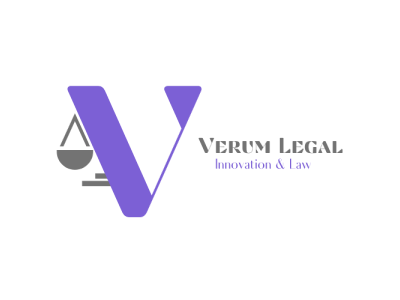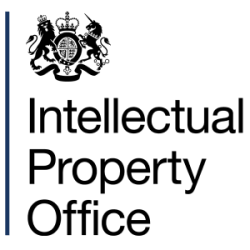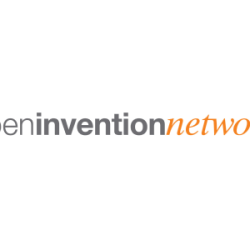 Patents are advanced intellectual property that establish the abilities and prospective future of a nation. The evolution of the Patent Law regime in India has been driven by a number of factors, including changes in technology, economic developments, and the global political landscape. A remarkable development in recent years would be the increasing importance of intellectual property rights, as companies strive to protect their investments in research and development.
Patents are advanced intellectual property that establish the abilities and prospective future of a nation. The evolution of the Patent Law regime in India has been driven by a number of factors, including changes in technology, economic developments, and the global political landscape. A remarkable development in recent years would be the increasing importance of intellectual property rights, as companies strive to protect their investments in research and development.
The increasing use of the patent system to protect pharmaceutical and biotechnology inventions has been on the forefront of developments in Patent Law. This has led to a growing number of patent disputes in the pharmaceutical sector, as companies compete to protect their innovative products and processes and sometimes, find the Indian Patent Law to be restrictive or suffocating for development.
As it has become a need of the hour, the Indian courts have had to balance the need to protect innovation while also ensuring access to affordable medicines for the general public. In recent years, there has also been a growing trend towards the harmonisation of patent law at the international level, through agreements like the TRIPS agreement and the Patent Cooperation Treaty. These agreements have had a significant impact on the development of patent law in India and around the world.
One such evolutionary development can be observed in the recent case before the Delhi High Court, Novartis Ag & Anr. vs Natco Pharma Limited. Here, Novartis had a dispute with Natco Pharma over the cancer drug Ceritinib, also known as “Zykadia” internationally. Novartis claimed that Natco was making and selling the drug without a registered or authorised licence, which is a violation of Novartis’s patent rights.
The dispute began when Natco launched its own version of Ceritinib, called “Noxalk”, in India. Novartis then went to court to try and stop Natco from selling Noxalk, and in May 2019, the court granted Novartis a permanent injunction, which was suspended a few months later.
As per the Indian Patent Act, rights in a patent are only valid for the duration that the patent remains granted and has not been revoked. According to Section 62(2) and Section 11A(7) of the Patent Act, 1970, no infringement action can be maintained for an unregistered or revoked patent. Additionally, no infringement action can be filed until the patent is granted, even if it has been published, but damages can be claimed from the date of publication. Therefore, since the patent for Ceritinib was revoked, the continuation of the injunction, even for a day, was not permissible. The order dated August 16, 2019, revoking the patent, also directed the defendant to refrain from manufacturing any pharmaceutical preparations containing the API “Ceritinib.”
Therefore, the reason for the suspension of the permanent injunction can be said to be revocation of the patent for Ceritinib and when Novartis found out that Natco was still making Ceritinib, they went back to court and the Delhi High Court heard the case.
The court then considered the Indian Patents Act, 1970, which provides protection for patented inventions and gives the patent holder exclusive rights for a certain period of time. According to section 48 of the Act, anyone who makes, uses, offers to sell, or sells a patented invention without the permission of the patent holder is committing “patent infringement”. The court found that Natco was indeed infringing Novartis’s patent and that because Novartis held the patent rights for Entresto/ Vymada no other party can use, sell or offer to sell it apart from Novartis itself.
The recent court order gained significance as it would help facilitate “everyone” to launch the generic version of the heart failure drug in India. Even so, Nacto argued that the patent was granted to Novartis without proper procedure, without giving Natco the opportunity to raise objections through pre-grant opposition as outlined in Section 25(1) of the Patent Act. But, when the court upheld Novartis’s patent on Entresto, a combination of sacubitril and valsartan, it obstructed the plans of Indian pharmaceutical companies to introduce generic versions of the popular drug.
The evolution of patent law in India has helped in the adjudication of the present case involving Novartis and Natco Pharma by providing a clearer framework for the protection of patents and other forms of intellectual property. The 2005 amendment to the Indian Patent Act helped align the Indian patent system with international norms and standards, providing better protection for patent holders and streamlining the patent examination process. The 2005 amendment has had a significant impact on the pharmaceutical industry in India and has helped to balance the interests of innovators and public health. Some of the key changes in the amendment, specifically in support of the pharma industry are:
- Introduction of product patents for pharmaceuticals and food products in India which meant that Indian companies could make and sell generic versions of patented drugs by simply finding a different way to make the drug.
- Introduction of the pre-grant opposition procedure, which allows third parties to challenge a patent application before it is granted. This was included to allow for greater transparency and to give potential competitors an opportunity to raise objections to a patent application before it is granted.
- Included provisions for compulsory licensing, which allows the government to grant a license to manufacture a patented drug without the consent of the patent holder in certain circumstances, such as when the drug is needed to address public health problems or when the drug is not being made available to the public at a reasonable price.
This also serves as a testament to the increasing importance of intellectual property rights in the pharmaceutical sector has also had a significant impact on the present case, as Novartis has been able to assert its rights over the cancer drug Ceritinib. The harmonisation of patent law at the international level has also helped to ensure a consistent and predictable framework for the protection of patents, making it easier for Novartis to assert its rights in India.
Written by Ms. Vasundhara, Managing Partner, Verum Legal











